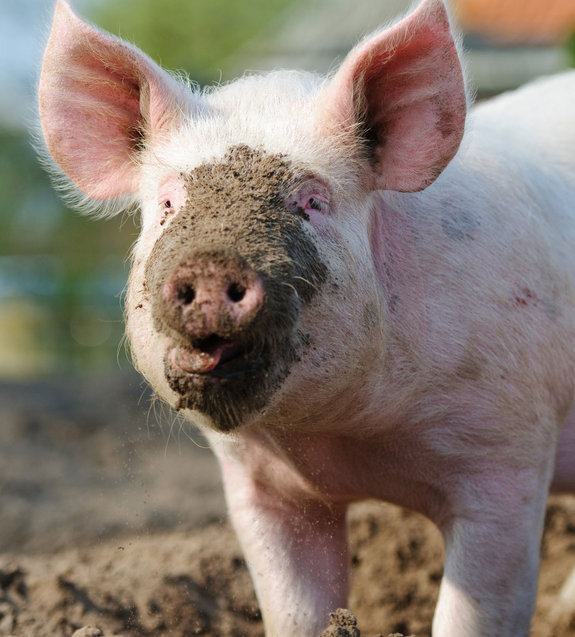Privileged Pigs Are More Optimistic

Are you a pessimist or an optimist? If you're anything like pigs, your outlook on life may depend on your personality and mood, according to a new study.
Previous research revealed that humans' "cognitive biases" — deviations in judgment that form people's individual characteristics and personalities — are affected by mood and behavior. Now, scientists have found that the same process can affect how animals think. In a new study, scientists demonstrated for the first time that a combination of mood and personality can have a significant impact on a pig's outlook.
Pigs' personalities are either "proactive" or "reactive," according to the researchers. A proactive pig is characterized by a lively demeanor and steady behavior, whereas a reactive pig is more passive and inconsistent in its responses. In humans, proactivity and reactivity have been linked to extraversion and neuroticism; extroverted individuals tend to be more optimistic, and people with neurotic tendencies are typically more pessimistic. [7 Things That Will Make You Happy]
"Our results suggest that judgement in pigs, and potentially in other animals, is similar to [that in] humans — incorporating aspects of stable personality traits and more transient mood states," study lead author Lucy Asher, a neuroscientist at Newcastle University in England, said in a statement. "The study provides a fascinating insight into the minds of these intelligent animals and paves the way for even more in-depth studies in the future."
The researchers studied the behavior 36 domestic pigs, each classified as either proactive or reactive. Then, the researchers divided the pigs into two groups with a mix of personality types, and housed each group in a different environment known to influence their mood: One environment was more enriched, with more straw and space, and the other was plain. Next, pigs in each environment were presented with feeding bowls: One contained the positive outcome of sweets, and another contained the negative outcome of coffee beans.
Then, the researchers introduced a third, "ambiguous" feeding bowl that was empty. They observed whether the pigs approached the bowl expecting more sweets (another positive outcome), thus showing how optimistic or pessimistic each pig was.
Proactive pigs were more likely to respond optimistically. However, reactive pigs' responses depended on their environment. Those in the enriched environment, and thus in a better mood, tended to respond optimistically, the researchers said.
Sign up for the Live Science daily newsletter now
Get the world’s most fascinating discoveries delivered straight to your inbox.
"The results of our study clearly show that those pigs living in a worse environment were more pessimistic, and those in a better environment were much more optimistic," said project leader Lisa Collins, a professor of animal science at the University of Lincoln in the United Kingdom. "Importantly, this finding demonstrates that humans are not unique in combining longer-term personality traits with shorter-term mood biases when making judgments."
The results of the study were published online Nov. 16 in the journal Biology Letters.
Original article on Live Science.










